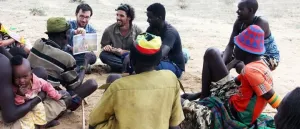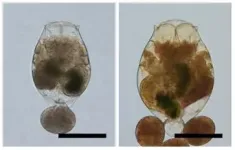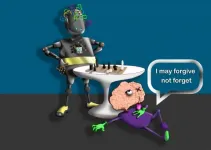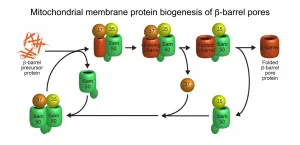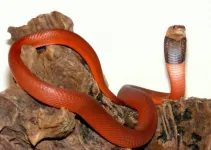INFORMATION:
Divergences between scientific and Indigenous and Local Knowledge can be helpful
Carnivore conservation can be improved by recognizing the divergences between scientific and Indigenous and Local Knowledge
2021-01-15
(Press-News.org) Divergences between scientific and Indigenous and Local Knowledge can provide a better understanding of why local pastoralists may be willing, or not, to participate in conservation initiatives for carnivores, a study from University of Helsinki suggests.
Carnivore conservation has historically been based primarily on scientific knowledge using a wide range of sampling methods, such as camera trapping and track surveys. However, the estimates of these common ecological sampling methods can be quite uncertain and can depend on accessibility and geology, which is the case of many remote areas, such as Sibiloi National Park in Northern Kenya. For this reason, the inclusion of local communities that share land with carnivore species has been encouraged to enhance conservation.
"I remember at the beginning of the project, many local pastoralists told me that they see cheetahs running at full speed. However, despite their accurate descriptions, I was very sceptical about it, as I did not have any image from my camera traps. A year later, I got a photograph of a cheetah holding a grant gazelle. On that day, I recognized that local pastoralists were correct all along. I acknowledged the importance of complementing scientific knowledge with Indigenous and Local Knowledge of local pastoralists that share their day-by-day lives next to those carnivores," describes Miquel Torrents-Ticó, a PhD student from the Faculty of Biological and Environmental Sciences at the University of Helsinki, and the lead author of the study.
Indigenous and Local Knowledge is held by the local community and handed down through generations of continuous interactions with their environment. Traditionally, there has been a tendency to compare Indigenous and Local Knowledge with scientific knowledge looking especially for convergences to enhance wildlife management. However, there are also divergences between scientific and Indigenous and Local Knowledge that have been less studied because they can indicate stakeholders' conflicts and can create challenges in effectively implementing conservation actions.
"The idea of this study was to complement information derived from camera trapping, track surveys and semi-structured interviews of local pastoralists acknowledging the divergences and explaining the unknown status of carnivores of the remote area of Sibiloi," explains Miquel Torrents-Ticó.
Biodiversity loss of carnivores in Sibiloi is dramatic
Although in the past, Sibiloi National Park in Northern Kenya, had a rich mammalian fauna, nowadays, large animals have decreased sharply. Surprisingly, researchers know very little of this process of biodiversity loss due to Sibiloi' isolated location, and it is not clear which species remain and how threatened they are.
"Many local Daasanach remember with joy the time when as children they used to see lions, leopards and cheetahs in Sibiloi," says Torrents-Ticó. "However, our study shows a new reality of Sibiloi with some carnivore species already gone, such as lions, and many others present in very low numbers, such as cheetahs and striped hyaenas."
In view of these results, the authors call for an urgent need for conservation actions before Sibiloi reaches a dramatic point of no return, where all carnivores will be extinct from the area.
The potential of complementation: Inclusive conservation with space for divergences
This study highlights that carnivores abundances obtained by complementing scientific and Indigenous and Local Knowledge can diverge, which can provide a wider picture of human-carnivores relationships and conservation contexts. For instance, carnivore species that have a high impact on local pastoralists' livelihoods and safety can be perceived as being more abundant by local pastoralists, even if the abundances obtained from ecological scientific methods are low.
"Divergences between scientific and Indigenous and Local Knowledge due to high perceptions of risk and damage should be considered in order to take into account local pastoralists views, and in this way, make conservation more inclusive," emphasizes Torrents-Ticó.
ELSE PRESS RELEASES FROM THIS DATE:
Filling a crucial gap in aquafarming: ion beam breeding to the rescue
2021-01-15
A research team led by scientists at the RIKEN Nishina Center for Accelerator-Based Science (RNC) has successfully created larger-than-usual strains of zooplankton -- which are used in fish nurseries -- by creating mutations with a heavy ion beam. The new strains of zooplankton could contribute to improving the survival rate and optimizing the growth of juvenile fish in aquaculture.
Economically important fish species, such as bluefin tuna, yellowtail, flatfish and groupers, are fed live bait until they are large enough to be fed with artificial foods. ...
A new tool to facilitate quicker, error-free software design
2021-01-15
Any building project requires the formulation of a series of initial plans prior to starting construction to serve as a basis and guide for the whole process. A similar procedure is followed in software development, with the inclusion of a specific step known as modelling. "The process is equivalent to the production of a set of plans for a building before its construction," explained Universitat Oberta de Catalunya (UOC) Faculty of Computer Science, Multimedia and Telecommunications professor and member of the SOM Research Lab research group -from the Internet Interdisciplinary Institute (IN3)-, Robert Clarisó.
Engineers use modelling to describe ...
Artificial Intelligence beats us in chess, but not in memory
2021-01-15
In the last decades, Artificial Intelligence has shown to be very good at achieving exceptional goals in several fields. Chess is one of them: in 1996, for the first time, the computer Deep Blue beat a human player, chess champion Garry Kasparov. A new piece of research shows now that the brain strategy for storing memories may lead to imperfect memories, but in turn, allows it to store more memories, and with less hassle than AI. The new study, carried out by SISSA scientists in collaboration with Kavli Institute for Systems Neuroscience & Centre for Neural Computation, Trondheim, Norway, has just been published in Physical Review Letters.
Neural networks, real or artificial, learn by tweaking the connections ...
Altering mealtimes could prevent development of Type 2 diabetes
2021-01-15
An innovative new study is set to examine if changing our mealtimes to earlier or later in the day could reduce the risk of developing Type 2 diabetes.
Led by Dr Denise Robertson, Professor Jonathan Johnston and post graduate researcher Shantel Lynch from the University of Surrey, the study, outlined in the journal Nutrition Bulletin, will investigate if changing the time we eat during the day could reduce risk factors such as obesity and cholesterol levels that are typically associated with the development of Type 2 diabetes. The team of researchers will also for the first time investigate, via a series of interviews with participants and their friends and family, the impact of such changes on home life, work/social commitments and whether co-habitants of those who make such ...
Genital shape key to male flies' sexual success
2021-01-15
Having genitals of a certain shape and size gives male flies a major reproductive advantage, new research shows.
University of Exeter scientists examined the reproductive success of male Drosophila simulans flies both alone with a female and in various states of competition with other males.
Certain genital shapes were consistently better in terms of number of offspring sired.
However - surprisingly, given how fast genital form evolves - the selection documented was rather weak.
"Male genitals generally, and in Drosophila specifically, evolve very quickly, so we were really surprised to find this weak selection," said Professor David Hosken, of the University of Exeter.
"Selection is the major mechanism of evolution and hence where we see rapid evolution, ...
Basis for the essential cellular powerhouses
2021-01-15
Mitochondria are vital for the human body as cellular powerhouses: They possess more than 1,000 different proteins, required for many central metabolic pathways. Disfunction of these lead to severe diseases, especially of the nervous system and the heart. In order to transport proteins and metabolites, mitochondria contain a special group of so-called beta-barrel membrane proteins, which form transport pores in the outer mitochondrial membrane. So far, scientists have not been able to explain the operating mode of the sorting and assembly machinery (SAM) for the biogenesis of these beta-barrel proteins. A team led by Prof. Dr. Toshiya Endo from Kyoto University/Japan, Prof. Dr. Nils Wiedemann and ...
BIO Integration journal, Volume 1, Issue number 4, publishes
2021-01-15
Guangzhou, January 15, 2021: New journal BIO Integration (BIOI) publishes its fourth issue, volume 1, issue 4. BIOI is a peer-reviewed, open access, international journal, which is dedicated to spreading multidisciplinary views driving the advancement of modern medicine. Aimed at bridging the gap between the laboratory, clinic, and biotechnology industries, it will offer a cross-disciplinary platform devoted to communicating advances in the biomedical research field and offering insights into different areas of life science, in order to encourage cooperation and exchange among scientists, clinical researchers, and health care providers.
The issue contains an original article, three review ...
New England Journal of Medicine publishes COVID-19 treatment trial results
2021-01-15
A clinical trial involving COVID-19 patients hospitalized at UT Health San Antonio and University Health, among roughly 100 sites globally, found that a combination of the drugs baricitinib and remdesivir reduced time to recovery, according to results published Dec. 11 in the New England Journal of Medicine. Six researchers from UT Health San Antonio and University Health are coauthors of the publication because of the San Antonio site's sizable patient enrollment in the trial.
The Adaptive COVID-19 Treatment Trial 2 (ACTT-2), which compared the combination therapy versus remdesivir paired with an inactive placebo in hospitalized COVID-19 patients, was supported by the National Institute of Allergy and Infectious Diseases (NIAID), ...
Snakes evolve a magnetic way to be resistant to venom
2021-01-15
Certain snakes have evolved a unique genetic trick to avoid being eaten by venomous snakes, according to University of Queensland research.
Associate Professor Bryan Fry from UQ's Toxin Evolution Lab said the technique worked in a manner similar to the way two sides of a magnet repel each other.
"The target of snake venom neurotoxins is a strongly negatively charged nerve receptor," Dr Fry said.
"This has caused neurotoxins to evolve with positively charged surfaces, thereby guiding them to the neurological target to produce paralysis.
"But some snakes have evolved to replace a negatively charged amino acid on their receptor with a positively charged one, meaning the neurotoxin is repelled.
"It's an inventive genetic mutation and it's been completely missed until now.
"We've ...
An unexpected, and novel, target for prostate cancer - our biological clock
2021-01-15
PHILADELPHIA - Our biological or circadian clock synchronizes all our bodily processes to the natural rhythms of light and dark. It's no wonder then that disrupting the clock can wreak havoc on our body. In fact, studies have shown that when circadian rhythms are disturbed through sleep deprivation, jet lag, or shift work, there is an increased incidence of some cancers including prostate cancer, which is the second leading cause of cancer death for men in the U.S. With an urgent need to develop novel therapeutic targets for prostate cancer, researchers at the Sidney Kimmel Cancer - ...
LAST 30 PRESS RELEASES:
Alkali cation effects in electrochemical carbon dioxide reduction
Test platforms for charging wireless cars now fit on a bench
$3 million NIH grant funds national study of Medicare Advantage’s benefit expansion into social supports
Amplified Sciences achieves CAP accreditation for cutting-edge diagnostic lab
Fred Hutch announces 12 recipients of the annual Harold M. Weintraub Graduate Student Award
Native forest litter helps rebuild soil life in post-mining landscapes
Mountain soils in arid regions may emit more greenhouse gas as climate shifts, new study finds
Pairing biochar with other soil amendments could unlock stronger gains in soil health
Why do we get a skip in our step when we’re happy? Thank dopamine
UC Irvine scientists uncover cellular mechanism behind muscle repair
Platform to map living brain noninvasively takes next big step
Stress-testing the Cascadia Subduction Zone reveals variability that could impact how earthquakes spread
We may be underestimating the true carbon cost of northern wildfires
Blood test predicts which bladder cancer patients may safely skip surgery
Kennesaw State's Vijay Anand honored as National Academy of Inventors Senior Member
Recovery from whaling reveals the role of age in Humpback reproduction
Can the canny tick help prevent disease like MS and cancer?
Newcomer children show lower rates of emergency department use for non‑urgent conditions, study finds
Cognitive and neuropsychiatric function in former American football players
From trash to climate tech: rubber gloves find new life as carbon capturers materials
A step towards needed treatments for hantaviruses in new molecular map
Boys are more motivated, while girls are more compassionate?
Study identifies opposing roles for IL6 and IL6R in long-term mortality
AI accurately spots medical disorder from privacy-conscious hand images
Transient Pauli blocking for broadband ultrafast optical switching
Political polarization can spur CO2 emissions, stymie climate action
Researchers develop new strategy for improving inverted perovskite solar cells
Yes! The role of YAP and CTGF as potential therapeutic targets for preventing severe liver disease
Pancreatic cancer may begin hiding from the immune system earlier than we thought
Robotic wing inspired by nature delivers leap in underwater stability
[Press-News.org] Divergences between scientific and Indigenous and Local Knowledge can be helpfulCarnivore conservation can be improved by recognizing the divergences between scientific and Indigenous and Local Knowledge
